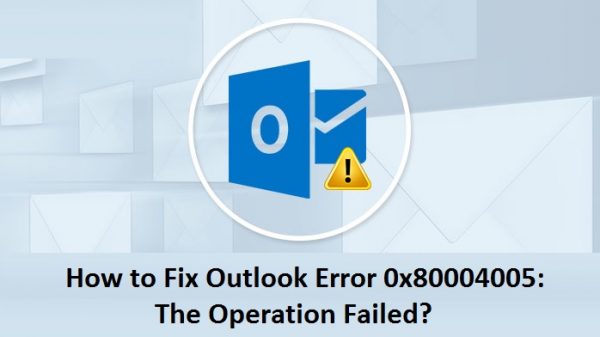Introduction
Are you a small business owner looking for reasons to go digital? If so, you’re in the right place! In this article, we’ll give you four compelling reasons why you should digitize your small business.
The Benefits of Going Digital
Small businesses have a lot to gain by going digital. By digitizing your operations, you can improve efficiency, better manage your finances, and even reach new markets. Here are just a few of the many benefits of going digital:
1. Improved Efficiency
Digital tools can help you streamline your operations, saving you time and money. For example, online appointment scheduling software can automate scheduling, while online invoicing and payments can help you get paid faster.
2. Better Financial Management
By going digital, you can gain better visibility into your finances. Online accounting software can help you track income and expenses, while online invoicing can help you keep tabs on who owes you money. You can also use digital payment solutions to reduce traditional methods like check processing costs.
3. Reach New Markets
With an online presence, you can reach customers anywhere in the world. If you sell products or services online, you can ship them to customers anywhere in the world with just a few clicks. And if you offer digital products or services, there are no geographic restrictions!
4. Improved Customer Service
Digital tools can also help you provide better customer service.
How to Go Digital
There’s no question that more and more businesses are going digital. The benefits of digitization are straightforward: businesses can save money on paper and printing costs, reach a wider audience with their message, and enjoy increased efficiency and productivity. But for small businesses, deciding to go digital can be challenging. After all, small businesses often have limited resources, and switching to a digital business model can require a significant upfront investment. So what’s the best way for a small business to go digital? Here are a few tips:
1. Start with your website. Your website is often the first contact between your company and potential customers, so make sure it’s up to date and looking good. If you don’t have a website, now is the time to create one.
2. Make sure your website is mobile-friendly. With more and more people using smartphones and tablets to access the internet, your website must be designed for mobile devices. This means having a responsive design that automatically adjusts to different screen sizes or creating a separate mobile version of your site.
The advantages of having a digital business
There are many advantages to having a digital business. Perhaps the most obvious is that it can save you money. You don’t have to invest in a brick-and-mortar store, which can be expensive. You also don’t have to stock inventory or hire employees. Another advantage is that you can reach a global market. If you have an online store, anyone in the world with an internet connection can buy from you. This is a great way to expand your customer base and increase sales.
Another advantage of having a digital business is that you can automate many tasks. For example, you can use automation tools to handle customer service, marketing, and accounting. This can free up your time to focus on other aspects of running your business. Overall, there are many reasons why having a digital business can benefit your small business. It can save money, help you reach more customers, and make your life easier by automating tasks.
How to get started with going digital
There are many reasons why your small business should go digital. Perhaps you want to increase your customer base or reach a wider audience. Maybe you want to save money on traditional marketing methods or streamline your operations. Whatever your reasons, switching to a digital business model can be a great way to boost your bottom line.
The first step is to assess your needs and goals. What do you hope to achieve by going digital? Once you know what you want to accomplish, you can begin researching the best ways to make it happen. Many excellent resources are available online and in libraries that can help you get started.
Next, you’ll need to create a plan for going digital. This should include everything from developing a website to setting up social media accounts and creating an e-commerce strategy. Remember, the key is to start small and gradually build your presence. Don’t try to do too much at once or you’ll quickly become overwhelmed. Finally, it’s time to start promoting your digital business once everything is in place. Use all the tools at your disposal, from online advertising to search engine optimization, to ensure potential customers can find you easily. With
What kinds of businesses are best suited for a digital transformation
There are many types of businesses that can benefit from digital transformation. Small businesses, in particular, can use digital technologies to improve their operations and reach new markets. Here are some of the most common benefits of going digital for small businesses:
1. Cost savings: One of the main benefits of digitizing your business is that it can help you save money. For example, you can use online tools to automate repetitive tasks and free up time and resources that can be better spent on other areas of your business. In addition, you can use digital marketing techniques to reach new customers at a lower cost than traditional marketing methods.
2. Improved efficiency: Digital technologies can also help you improve the efficiency of your business operations. For instance, you can use cloud-based software to manage your inventory and customer data more effectively. In addition, online project management tools can help you keep track of deadlines and progress more efficiently.
3. Greater reach: Going digital can help you expand your reach beyond your local market. With an online presence, you can connect with potential customers from all over the world. In addition, social media platforms and online advertising can help you reach a wider audience with your marketing messages.
How to make the transition to a digital business model
The internet has drastically changed the way businesses operate. In the past, companies relied on brick-and-mortar locations and face-to-face interactions to get customers. Today, businesses must have a solid online presence to reach their target audience. If you’re running a small business, you may wonder if you should transition to a digital business model. Here are a few reasons why it’s worth making the switch: You’ll reach a larger audience: With a digital business model, you’ll be able to get more people than you would with a traditional model.
You can market your business online and target a global audience. You can operate without a physical location: A digital business doesn’t need to have a physical location. This means you can save on rent and other expenses associated with maintaining a brick-and-mortar store. You can automate some of your processes: By switching to a digital business model, you can use technology to automate some of your operations. For example, you can use an eCommerce platform to automate your sales and shipping process.
Tips for success after going digital
1. Keep your content fresh: To keep your customers engaged, it is essential to regularly update your website and blog with new and relevant content. If you struggle to develop new ideas, consider hiring a freelance writer or generating customer testimonials to share on your site.
2. Take advantage of social media: Social media platforms are a great way to connect with potential and current customers. Be sure to post interesting and engaging content that will encourage users to follow your page and share your posts with their networks.
3. Use data to improve your marketing efforts: Thanks to digital tools, small businesses now have access to a wealth of data that can be used to inform marketing decisions. Use Google Analytics or similar programs to optimize your digital marketing strategy to track website traffic, social media engagement, and conversion rates.
4. Focus on SEO: Search engine optimization is essential for small businesses that want to be visible online. Optimizing your website content for keywords related to your products or services can increase your chances of appearing in search results and driving traffic to your site.
Conclusion
By digitizing your small business, you can improve efficiency and communication while reducing costs. In a fast-paced world, keeping up with the competition and offering customers the convenience they crave is essential. Whether you are just starting or have been in business for years, switching to digital is an excellent way to future-proof your company.






















































































